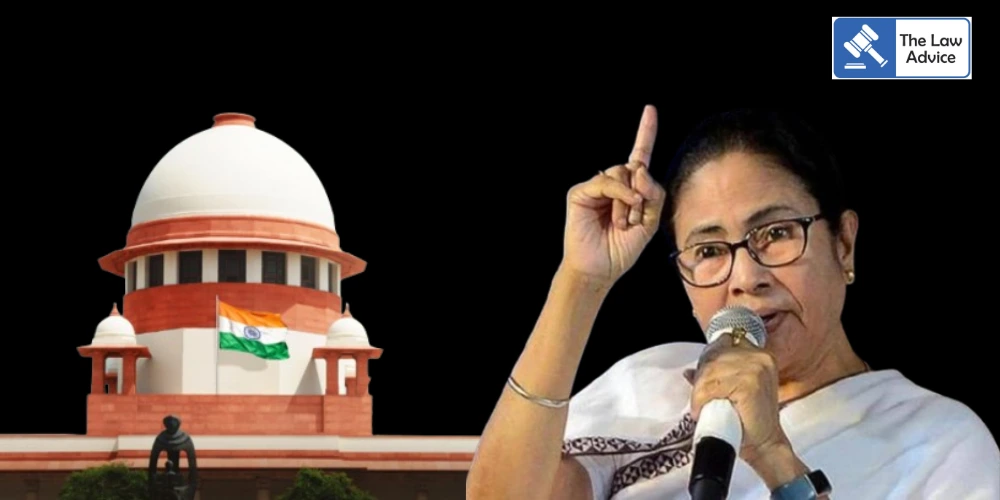New Delhi | July 21, 2025
The Supreme Court firmly pushed back against what it viewed as an attempt to drag it into political turf wars, when it heard a petition seeking criminal contempt proceedings against West Bengal Chief Minister Mamata Banerjee. The Court refused to entertain the plea at this stage and warned the petitioner to keep political disputes out of the courtroom.
A bench led by Chief Justice of India B.R. Gavai, sitting alongside Justice K. Vinod Chandran, took strong exception to the tone and intention behind the petition, which was based on the CM’s remarks criticizing the judiciary in the aftermath of the School Service Commission (SSC) scam verdict.
The Petition and the Pushback
The plea, filed by public trust Aatmdeep, alleged that Mamata Banerjee’s public statements following the Supreme Court’s order upholding cancellation of 25,000 teacher appointments amounted to scandalizing the Court. The petition sought to initiate criminal contempt proceedings against her.
However, the bench did not mince words in its response.
“If you have political battles to fight, fight them outside. Don’t drag this court into your politics,” CJI Gavai remarked, warning the petitioner not to misuse the court as a platform for political messaging.
The bench refused to pass immediate orders and listed the matter for further consideration in four weeks, pending necessary consent from the Attorney General of India, which is required for criminal contempt proceedings.
Background: The SSC Controversy
The case stems from the large-scale cancellation of teaching and non-teaching appointments in West Bengal following revelations of systemic irregularities in the School Service Commission recruitment process. The Calcutta High Court’s order, which was later upheld by the Supreme Court, led to widespread political fallout in the state.
Following the verdict, Mamata Banerjee publicly criticized the judiciary—statements which the petitioner claims “lower public confidence in the institution of the court.”
Judiciary Not A Political Arena
This is not the first time the apex court has had to draw boundaries between political discourse and judicial dignity. By refusing to act immediately and issuing a clear warning, the Supreme Court once again emphasized that courts are not battlegrounds for partisan grievances.
The bench reminded that the right forum for political accountability is the people, not the courtroom.
Legal Insight
• Contempt of Court under Indian law aims to protect the authority and dignity of the judiciary—not to act as a tool for political vendettas.
• Criminal contempt requires clear evidence that statements obstruct the administration of justice or lower the court’s authority.
• The Attorney General’s consent acts as a safeguard against frivolous or motivated contempt petitions.
Case Title: Aatmdeep Trust v. Mamata Banerjee
